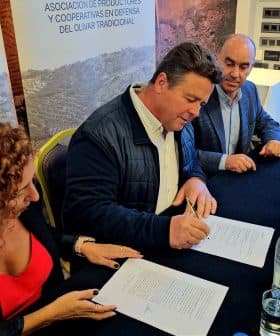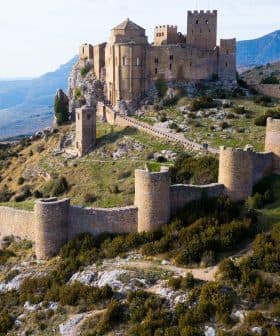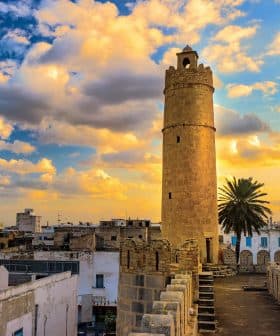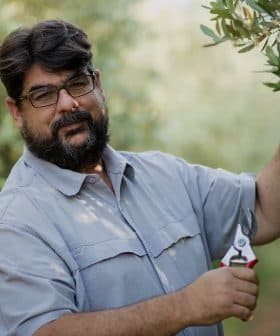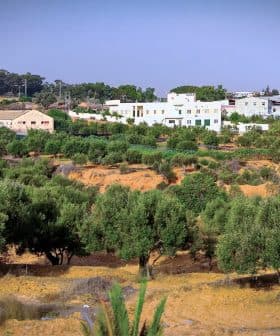Organic Farm in Jaén Blazes a Trail for Selling Carbon Credits
O.Live generates about 4.5 carbon credits per hectare from its 1,000 hectares of organic groves, establishing a model for producers to increase revenue.
 Electric harvesters emit less carbon that machine harvesting. (Photo: José María Chica)
Electric harvesters emit less carbon that machine harvesting. (Photo: José María Chica) The demand for sustainable and organic olive oil is increasing globally, with the value of the sector expected to double by 2031. To address the lower yields and profitability challenges faced by organic olive farmers, O.Live in Spain is selling carbon credits on the voluntary market to make organic farming more economically viable and sustainable. This initiative not only generates additional revenue for the company but also contributes to creating a more environmentally friendly future for generations to come.
Demand for sustainable and organic olive oil is increasing on a global level, with some market research indicating the value of the sector will more than double by 2031.
However, the challenges continue to dissuade many growers from converting to organic practices.
When farmers want to transition to organic agriculture, many quickly find out that there are no economic advantages… Carbon credits are a solution to change people’s mentality about organic farming.
A 2018 study carried out by researchers in Spain investigated the disadvantages faced by organic olive farmers compared to their conventional counterparts.
One of the most significant challenges is the lower yields of organic trees compared to conventional ones, resulting in organic growers needing more land to produce the same amount of olive oil.
See Also:Expansion of Organic Olive Groves Slows in SpainThis has been compounded by rising olive oil prices at origin, which have made conventionally produced olive oil far more profitable for farmers to sell over the past year compared to organic olive oil.
“Organic farmers are frequently at a certain disadvantage compared with conventional ones,” the authors of the study wrote. “The future of organic agriculture will depend on its economic viability.”
José María Chica, the chief executive of O.Live, broadly agrees with this assessment and is developing a model of selling carbon credits on the voluntary market to make organic olive farming more profitable.
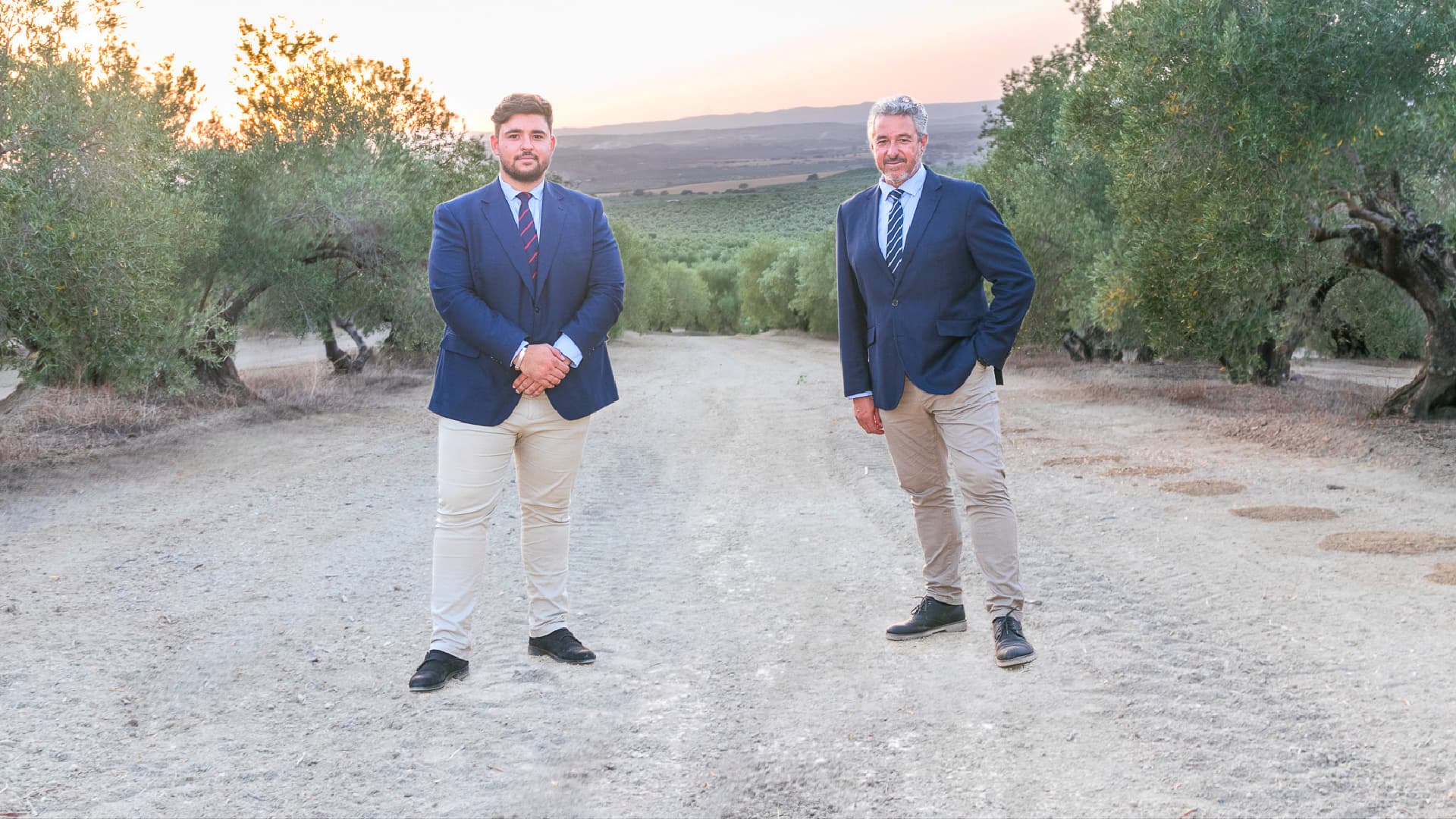
José María Chica (left) with his father, José Chica
“When farmers want to transition to organic agriculture, many quickly find out that there are no economic advantages and in two or three years, many switch back to conventional farming,” he told Olive Oil Times. “Carbon credits are a solution to change people’s mentality about organic farming.”
Situated in Jaén, a province of Andalusia responsible for about one-third of Spanish olive oil production in any given year, O.Live boasts more than 1,000 hectares of organic olive groves, a state-of-the-art mill powered by solar panels, a historic mill and some tourism infrastructure.
Chica believes that carbon credits will provide organic olive growers an alternative revenue stream to maintain these practices and allow them to compete with conventional olive growers in the region.
“We issue 4.5 carbon credits per hectare of olive groves,” Chica said. One carbon credit is the equivalent of one metric ton of sequestered carbon dioxide.
Currently, one carbon credit in the European Union’s compliance market trades at €68.08 ($73.28), which is about 15 percent lower than the start of the year.
Under current regulations, olive growers can certify sequestered emissions going back four years. “In total, we have 18,045 carbon credits available,” he said.
The idea to begin selling carbon credits came to Chica three years ago after friends of his began selling the credits through their forestry project. He thought that O.Live’s 1,000 hectares of olive groves, complete with cover crops, was very similar to his friend’s forestry project and began investigating the possibility.
Chica turned to researchers from the Polytechnical University of Madrid to determine how much carbon dioxide was sequestered by the trees and soil, along with how much carbon the company emitted growing, harvesting and milling the olives at their mill.
He added that growers need to be thorough in this process, including counting emissions that come from workers driving to work and emissions from various pieces of farm equipment.
After making this determination, Chica invited a third party to verify the results of the study, which they did. Chica then took that study to a separate company that generated the carbon credit based on its results.
Once the credits are certified, they are published in a public registry on the blockchain, which Chica said creates transparency and accountability in the market. The credits remain on the blockchain, with orders and invoices published there as well, so the movement of the credits is very public and visible.
Chica reinvests the money he earns from selling carbon credits on the voluntary carbon market back into the farm to continue to improve its sustainability.
“The philosophy of the carbon credits is the additionality,” he said. “Every year, you have to be better. You have to do something to improve.”
Chica said the company practices no-till agriculture, composts the branches that are pruned and uses this compost to fertilize the soil.
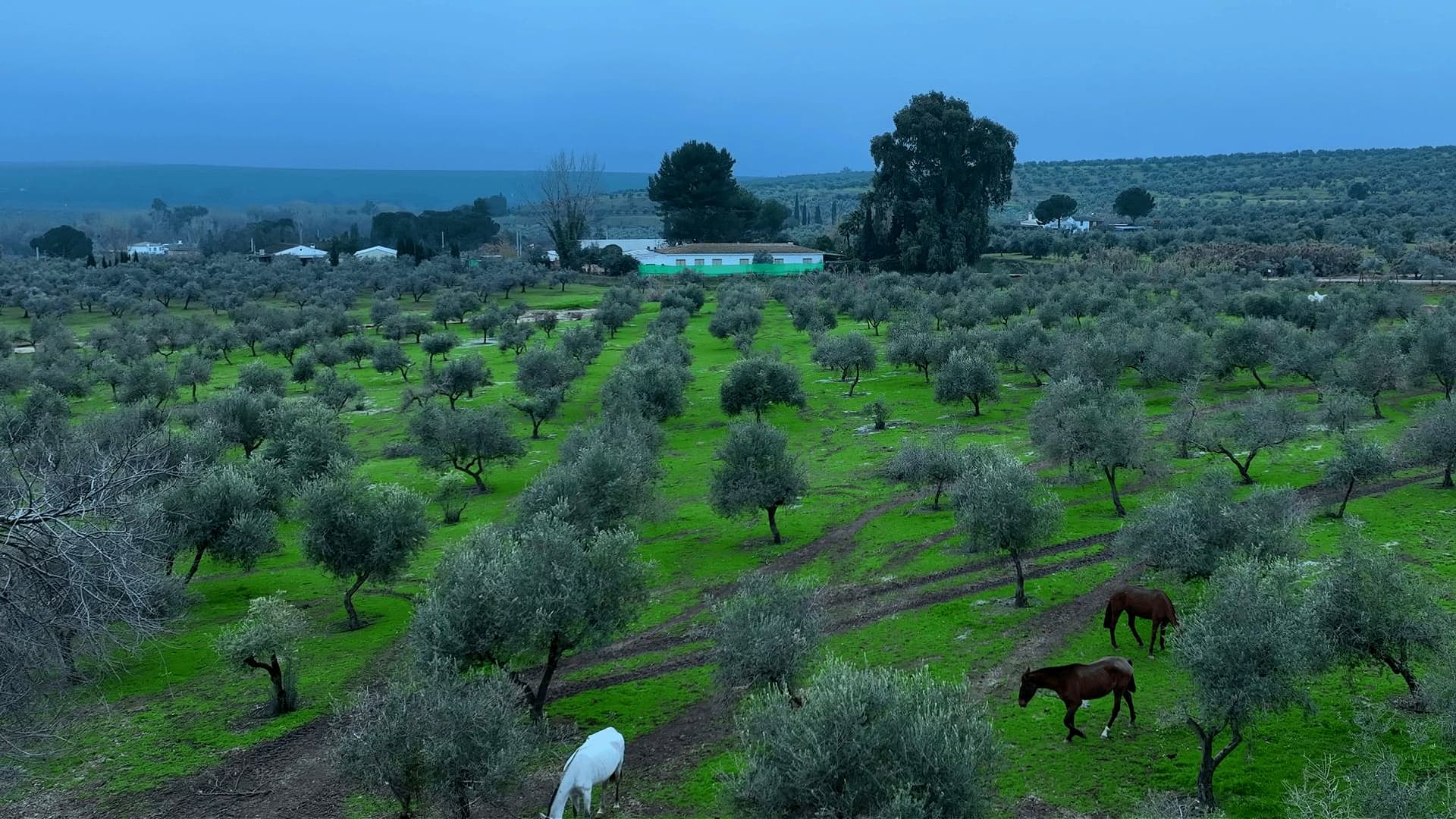
Horses, goats and bees support an ecosystem that sequesters carbon more effectively than a monoculture farm. (Photo: José María Chica)
The company also has goats, bees and horses in the olive groves that eat the grass and naturally fertilize the trees.
“Of course, we are organic, so we don’t use any insecticides, pesticides or fungicides,” all of which require significant energy to produce, he said.
Sustainability continues to the mill, which incorporates solar panels and boasts the latest technology to use energy more efficiently. The company also used the olive pits as biofuel to heat the water used in the mill.
Currently, Chica sells carbon credits to local Spanish companies, including a significant order for 4,000 earlier this year when the credits were trading at €72 ($77.50) each.
One of the challenges with voluntary markets is speculation. The price of carbon credits has been trending down over the past year after significant rises, but Chica believes that prices will continue to trend upward in the future.
“People are buying carbon credits today to sell in two, three or four years because the price is down now, but [I think] will go up in the future,” he said.
Chica said he tries his best not to sell to speculators, who attempt to buy credits at a lower price and hold onto them to resell when the price rises.
“We don’t want to sell to someone that wants to speculate with my carbon credits,” he said. “We sell directly to companies that compensate their emissions to be carbon neutral.”
The extra revenue generated by selling carbon credits has helped the company deal with the challenges of the previous and current harvest in Spain, but Chica said the reason O.Live is an organic producer goes beyond the additional revenue.
O.Live usually harvests five to six million kilograms of olives. Last year, they only harvested one million tons, and this year, they expect to harvest two million tons.
High heat in May at the time of flowering damaged trees as they were about to blossom, which resulted in reduced yields.
“For us, sustainability is very important,” Chica said. “[Being organic] is not only about the economic benefits [of selling carbon credits], but about creating an environment for my children and my children’s children to produce organic extra virgin olive oil too.”
Share this article



